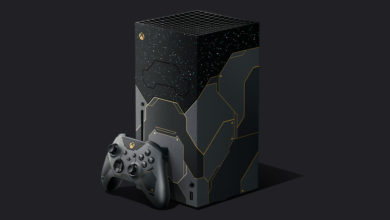Epic Wants to Use its New Unreal Engine 5 to Open Up Gaming’s Metaverse

[ad_1]
I lost myself one evening back in December in a PlayStation 5 demo tied to the release of The Matrix Resurrections. That demo, called The Matrix Awakens, was built using Unreal Engine 5, and was made as an inspirational example of how Epic Games’ latest game engine will push the scope and realism of game design into a level that sometimes seems… well, unreal.
Epic released Unreal Engine 5 at its online event Tuesday, and the software tools are expected to catapult already powerful games on PlayStation 5 and Xbox Series X even further. And PC games, VR games and most likely all sorts of other metaverse and film production and design tools, too.
It’s always a little unclear how new game development tools will impact the types of games we’ll eventually play, but Unreal Engine 5 has been pitched as a killer toolkit for these consoles since before they were launched. And in a year when the metaverse has been name-dropped more times than any tech catchphrase I can remember, Unreal Engine 5’s focus on rendering detailed open worlds could lead to a new wave of more impressive virtual-world experiences.
Unreal Engine 5’s World Partition promises to allow vast open-world universes to become even more commonplace.
Epic Games
As for what these future games could look like, Epic still points to its The Matrix Awakens demo that arrived last December on PS5 and Xbox Series X and S. That demo combined the engine’s higher-detail environments, lighting effects and large-scale landscape rendering that could make future open-world games like Elden Ring feel even more impressive. The next Witcher game, one of the first titles that announced moving over to Unreal Engine 5, signals the shift that could be coming for a lot of games. Crystal Dynamics’ next Tomb Raider game is also being built in the new engine.
Epic is also looking to make it easy to upgrade and update existing games, which could mean upgrades to existing games coming sooner than later.
“Developers that are using Unreal Engine 4 today will have the option to bring their projects to UE5 and start to leverage the features,” says Nick Penwarden, VP of engineering for Epic Games, in a conversation with CNET. “I hope that means we’ll start to see UE5 games come out sooner than if everybody had to start from scratch today, because we’ll be seeing UE4 games make the jump to UE5.”
While Penwarden sees UE5’s biggest advantages being aimed at premium consoles and higher-end PCs, he also sees tools like the engine’s World Partition, which breaks down massive open worlds into distinct pieces, as leading to better open-world games on the Nintendo Switch and mobile devices, too.
Open world games can be seen, in some ways, as a stand-in for the metaverse. Epic’s certainly positioning the connection in people’s minds, especially with the Matrix Awakens demo and its metaverse-like open city that can be explored. Those city assets, which include everything except the Matrix IP, are also being given away for free for developers to modify or use. Epic still sees that Matrix demo as the best introductory example of what next-gen games can do.
“The Matrix Awakens is kind of our vision for what is possible with UE5 technology on the next generation of consoles,” says Penwarden. “I’m looking forward to playing more games that have that level of visual fidelity, as well as getting the tools and ecosystem out so that developers of all sizes can start making content that hits that level of quality.”

Lyra, a model multiplayer game that’s included with Unreal Engine 5 as a building block for developers to work from.
Epic Games
Epic’s Fortnite Chapter 3, released last December, is already built using Unreal Engine 5. Epic is also including a multiplayer game, called Lyra, that’s designed to be a “living project” showing ideas and best practices for game design on the engine. Lyra won’t be a game that can be downloaded and played if you’re not a developer, but it can be played within Epic’s developer tools, and modified as needed. The game is designed to be testable and playable across mobile and PC, and has character models that animate in a similar way to Epic’s ultrarealistic MetaHuman avatars.
With consoles like the PS5 still extremely hard to buy, and promises of the PlayStation VR 2 on the horizon, next-gen consoles have felt like they’re still a half-step. Unreal Engine 5 could be the start of that next half-step for next-gen.
[ad_2]
Source link






